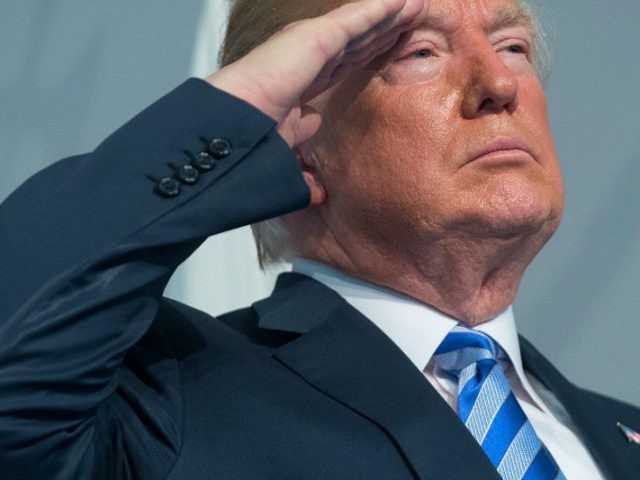The Constitution makes all U.S. presidents immune from prosecution for any crime — including obstruction of justice — until after they leave office and are permanently immune from being prosecuted for using constitutional powers to take official acts. And a president’s conversations with senior aides about these matters are covered by executive privilege. Presidents are accountable for all such things, but to Congress and the voters, not the courts.
Reports surfaced that Special Counsel Robert Mueller wants to ask President Donald Trump about conversations the president had with Attorney General Jeff Sessions about un-recusing from the Russia investigation. Mueller’s challenge is that the Constitution does not permit him to make the president answer.
First, conversations between the president and his immediate staff — whether senior White House staff or senior agency officials like Cabinet secretaries — are covered by the presidential communications privilege, which is the strongest form of executive privilege. The Constitution ensures that every president can get candid advice from his top lieutenants by exempting their disclosure to Congress or the courts, knowing that senior leaders my self-censor on controversial issues if they knew the advice might one day become public.
No president can be compelled to testify before a grand jury or in open court. Presidents have volunteered to do so, and the Supreme Court has allowed court orders to produce documents or recordings. But no president can be forced to testify, especially in a criminal proceeding.
Second, OLC opinions from administrations of both parties have said for decades that no sitting president can be criminally prosecuted. OLC is the Office of Legal Counsel, the elite legal analysis team for the attorney general and the Department of Justice (DOJ), and through the attorney general, to the president and every department of the U.S. government. From Republicans like Richard Nixon to Democrats like Bill Clinton, OLC has issued and reaffirmed that a sitting president cannot be charged with a crime or indicted by a grand jury while he is still in office.
OLC explains that there are several reasons for this. One is that the president is the top law enforcement officer in the nation; the attorney general, every federal prosecutor, and every federal agent is the president’s subordinate, asserting executive power in his name. The president cannot prosecute himself, but that exactly what would happen if Mueller — who is still part of DOJ — were to use President Trump’s law enforcement power to indict President Trump as a defendant.
Another reason is that the U.S. president holds a unique position in the American form of government. Every single day, the president must consider the most pressing issues facing the nation, making historic decisions. OLC concluded that while he holds office, the president cannot be compelled to face the all-consuming distraction of criminal prosecution, where a president spends his days concerned about defending himself instead of working for the American people. The needs of the nation for a completely focused commander in chief outweighs the importance of any one criminal prosecution.
When the Supreme Court has held that the Constitution allows or requires certain types of involvement in legal proceedings by presidents, the justices are always careful to explain how those involvements are different from a criminal investigation. The media has abysmally misreported that the Supreme Court has allowed private civil suits against a president for personal conduct before he was president, and also to produce tape recordings, but never to answer questions under oath against his will.
Not only that, but there is no allegation of any crime here. There is no evidence of collusion with Russian, but even if there were, collusion is not a crime. What, then? Probing conversations like that between the president and Sessions at Mar-a-Lago sounds like trying to make a case for obstruction of justice, but it is not. Article II of the Constitution vests all executive authority in the president alone. As chief executive, he has every right and prerogative to instruct every subordinate who serves at his pleasure — like the attorney general — how the president as chief executive would like those subordinates to lawfully exercise the power that they derive from the president and use on his behalf.
Article II commands the president to “take care that the laws be faithfully executed.” So long as the president’s instructions are consistent with the federal Constitution and federal statutes, his expressing wishes to his subordinates on how they are to enforce the priorities of his administration cannot be criminalized. The same goes for his pardon power: a president can pardon anyone for any federal crime, except in cases of impeachment.
Even if such things could be crimes, it has already been explained why a president cannot be indicted or charged. But indicting and charging are the only options a special counsel can pursue. If Mueller cannot take either of those actions, then there is no need to put the president under oath to answer his questions.
This does not mean that a president can do whatever he wants. He still must answer to the voters, and Congress retains comprehensive authority to impeach and remove any executive officer, including a president. But it is only Congress, not the courts, that can hold a sitting president accountable regarding allegations like these.
Every Democrat pushing for ongoing investigations should admit publicly whether he or she wants Congress to begin impeachment proceedings against the president, making it a 2018 midterm election issue.
President Trump should welcome that fight because it is a fight he would win.
Ken Klukowski is senior legal editor for Breitbart News. Follow him on Twitter @kenklukowski.

COMMENTS
Please let us know if you're having issues with commenting.